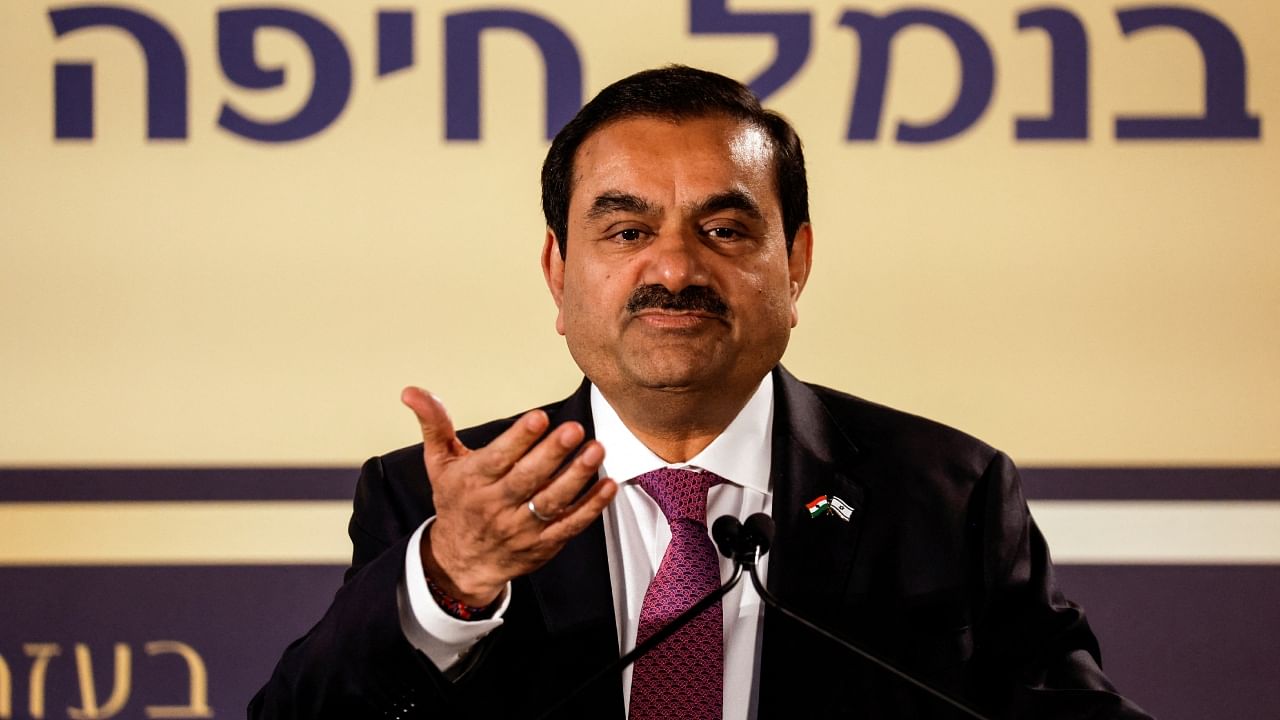
Adani Group chairperson Gautam Adani.
Credit: Reuters File Photo
By Andy Mukherjee
A year and a half after Hindenburg Research accused Gautam Adani of “pulling the largest con in corporate history,” the Indian market regulator is yet to conclude if the tycoon close to Prime Minister Narendra Modi violated any securities laws. The inquiry has now shot itself in the foot by turning its gaze toward Asia’s richest banker.
Ordered by the country’s Supreme Court to probe the allegations of price manipulation and accounting fraud against Adani — which he has strenuously denied — the Securities and Exchange Board, or Sebi, has stumbled upon a connection between last year’s $150 billion meltdown in the conglomerate’s stocks and Uday Kotak, a billionaire Mumbai financier.
Even the disclosure of this link is courtesy of Hindenburg. The short seller has made public the show-cause notice it received last week from the Sebi. In the process of knocking down the letter, which it described as an attempt to “silence and intimidate those who expose corruption and fraud perpetrated by the most powerful individuals in India,” it revealed that the vehicle used to bet against Adani’s flagship firm belonged to Kotak Mahindra (International) Ltd., a Mauritius-based subsidiary of Kotak Mahindra Bank Ltd.
But the fund in question is only managed by the Kotak firm. The principal is New York-based hedge fund manager Mark Kingdon’s Kingdon Capital Management. Sebi’s notice includes extracts of time-stamped chats, where an employee of the American firm appears to be instructing a Kotak trader to sell futures contracts in Adani Enterprises Ltd.
This went on for about two weeks, the Sebi says, ahead of the publication of the Hindenburg report on Jan. 24, 2023. The Kingdon-controlled fund squared off its short positions the following month for a profit of $22 million, shared between Kingdon and Hindenburg, which provided the research. Kotak was nothing more than a middleman, executing the trades.
As Kotak Mahindra Bank said in a statement after its shares fell 2 per cent Tuesday, “Kingdon never disclosed that they had any relationship with Hindenburg nor that they were acting on the basis of any price sensitive information.” Hindenburg says it expects Sebi may try to impose bans or fines on the research firm. Kingdon told the Sebi he obtained legal advice about putting trades based on Hindenburg’s draft report before it was made public, and that he isn’t obliged to share the contents of the privileged communication.
Ultimately, the only entity over which the Indian regulator has any jurisdiction here is the fund, a Sebi-registered foreign portfolio investor. That’s perhaps the only reason to drag Kotak’s Mauritius subsidiary into the inquiry — to stay in business, it has to cooperate. But by revealing the Indian institution’s involvement, Hindenburg is challenging the regulator to go further and expand its scrutiny to the prominent Mumbai financier as well.
That’s a little odd. If the Indian banker was really acting in cahoots with the US short sellers, why would the research firm be throwing him under the bus? Hindenburg’s larger point here is about fairness. After all, the Sebi has sent its show-cause notice to both Mark Kingdon and Nathan Anderson, the Hindenburg founder, accusing them of violating its regulations along with their firms. It has sent a similar notice to Kotak’s Mauritius subsidiary, too, because it is the manager of the fund used for short-selling. Yet, the regulator has decided to keep Kotak, the banker, out of its investigation. “We suspect Sebi’s lack of mention of Kotak or any other Kotak board member may be meant to protect yet another powerful businessman from the prospect of scrutiny, a role Sebi seems to embrace,” Hindenburg said in its response to the notice.
The securities watchdog has invited this embarrassment upon itself. A year ago, the Sebi was telling a court-appointed panel that it was investigating the 13 opaque offshore entities that held, as of March 2020, between 14 per cent and 20 per cent across five publicly traded stocks of the Adani Group. It wanted to verify whether the 42 investors who put capital into these 13 vehicles — 12 funds and one overseas financial firm — were mere fronts for Adani and his family, masquerading as public shareholders. The conglomerate has denied these allegations.
A year later, however, the focus seems to have changed. While it did send a couple of show-cause notices to the Adani flagship during the March quarter, there’s still no sign of the final report it was supposed to submit to the Supreme Court by April after concluding its investigation into the $207 billion Adani empire. Instead, the regulator is taking on the short sellers, a clear indication that proving or rejecting their allegations against the Indian infrastructure czar is no longer the priority.
And for that, Adani should consider sending a “thank you” note to Anderson, the Hindenburg founder.
The Indian group’s market capitalization plunged by $45 billion in just one day after the election result fell short of an outright majority for Modi’s party. The conglomerate regained its footing as the prime minister began his third five-year term with the help of coalition partners, though its valuation is still $28 billion lower than before the short-seller report last year. Now that the Sebi inquiry has gone in the wrong direction, and Hindenburg has dared the watchdog by bringing up Kotak’s name, Adani can go in search of new infrastructure deals — from transport and energy to data centers and building materials. I’m pretty sure he won’t be asking Kotak Mahindra to pony up money.